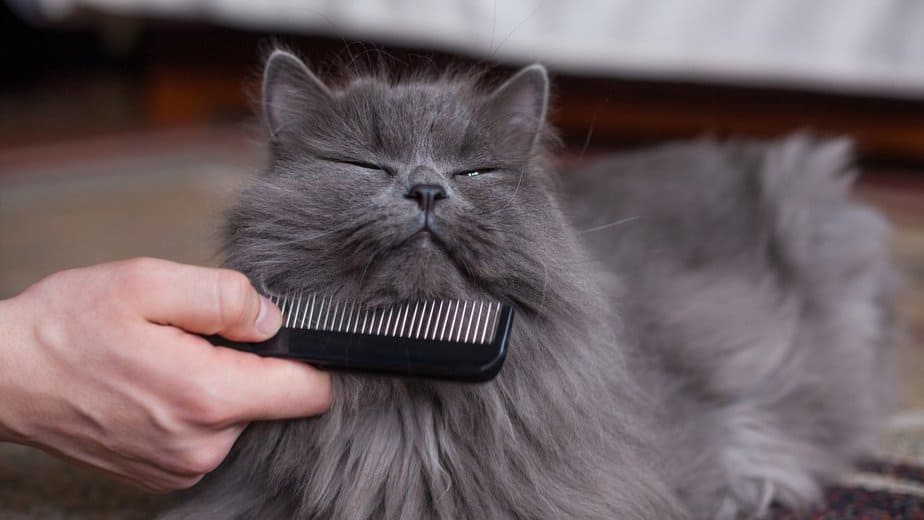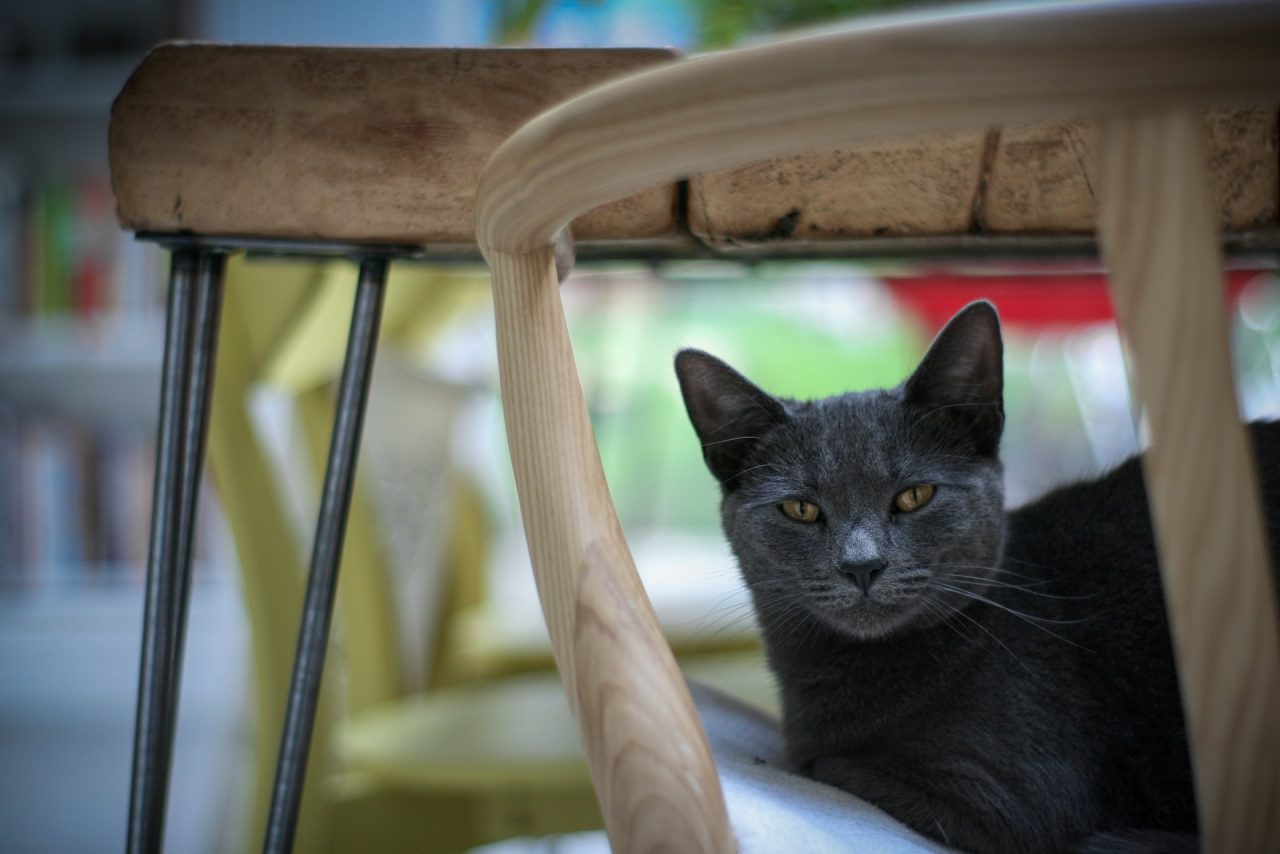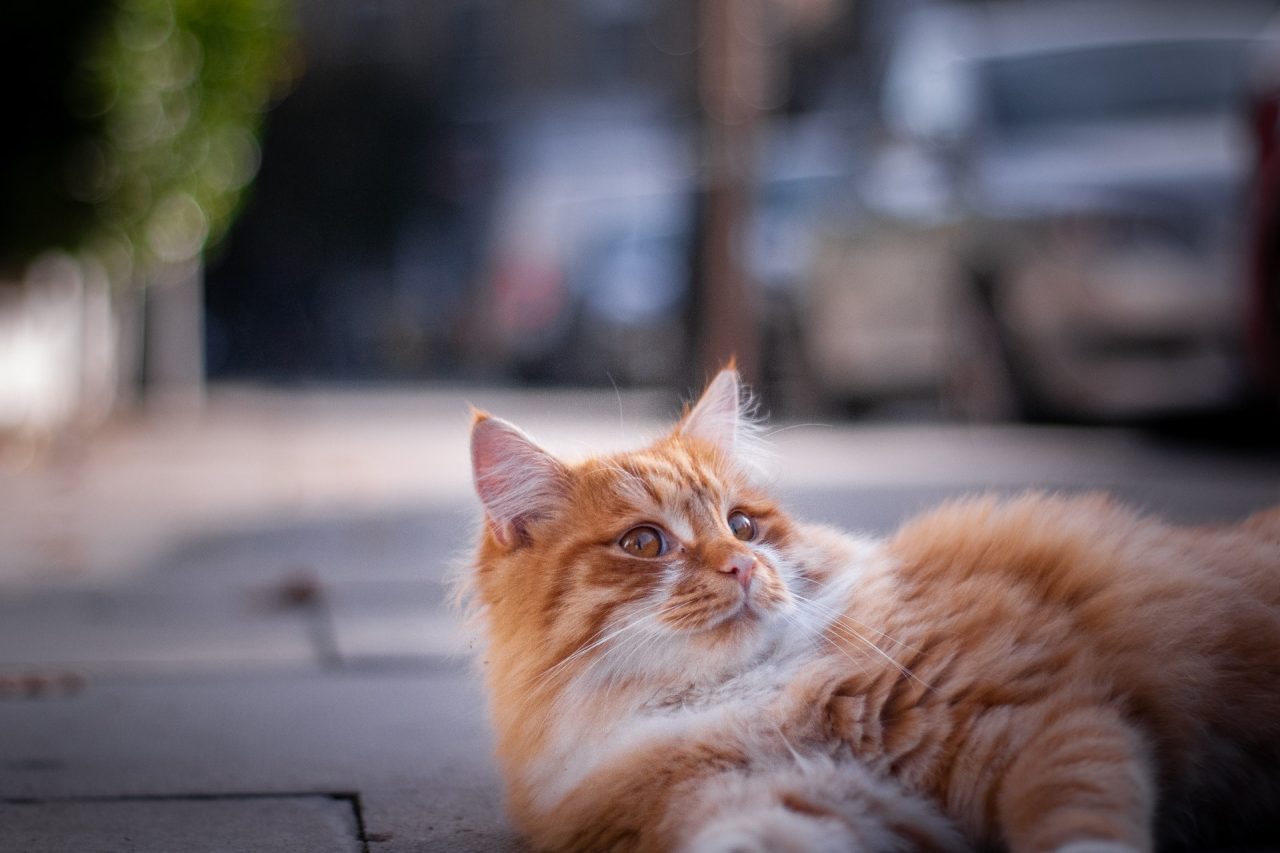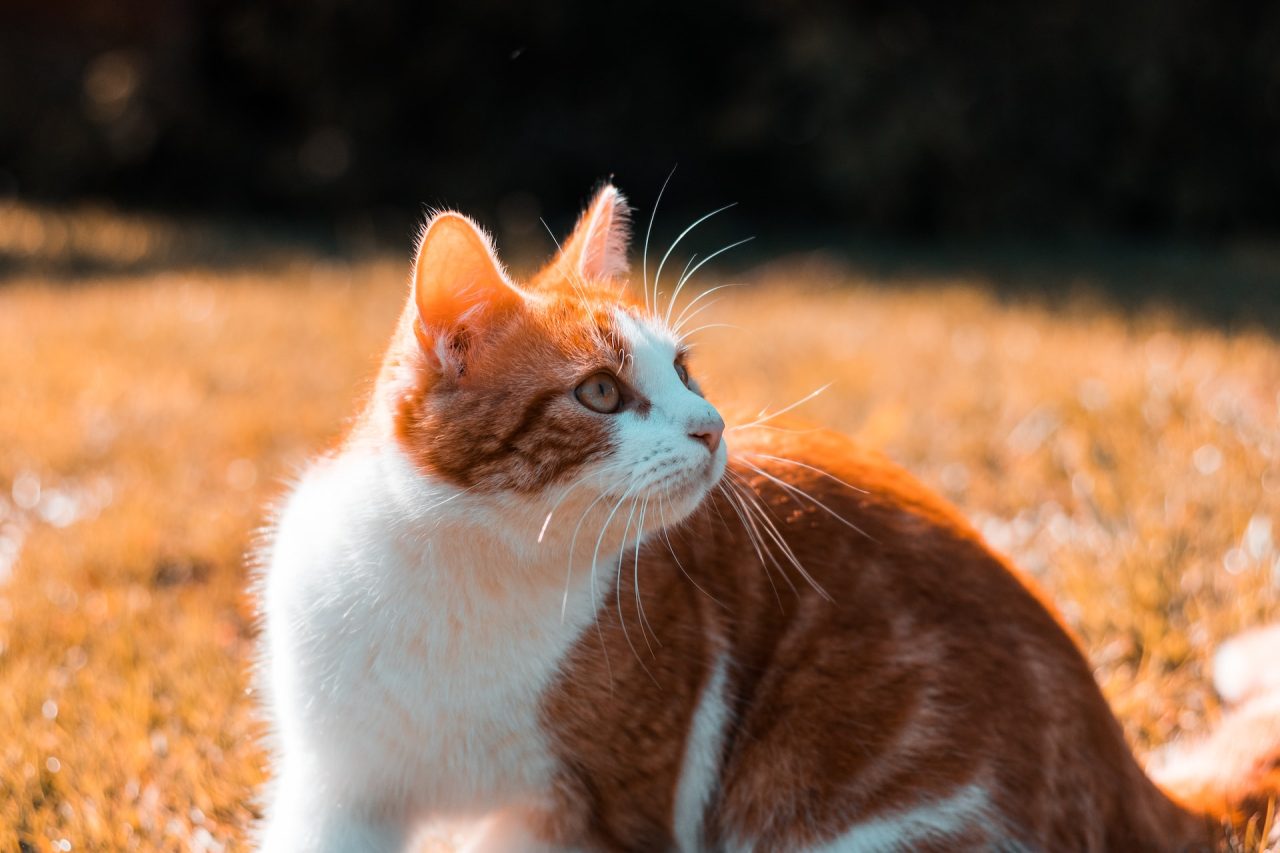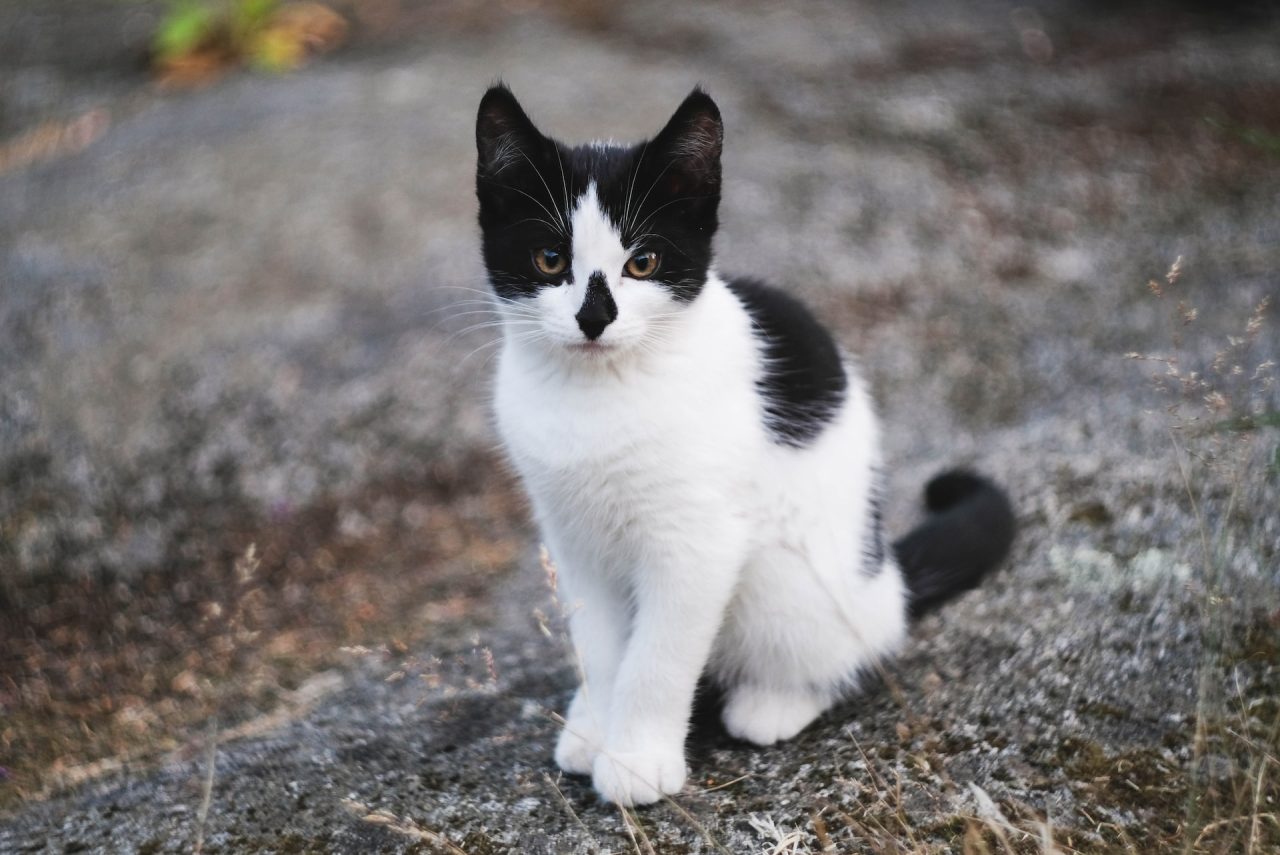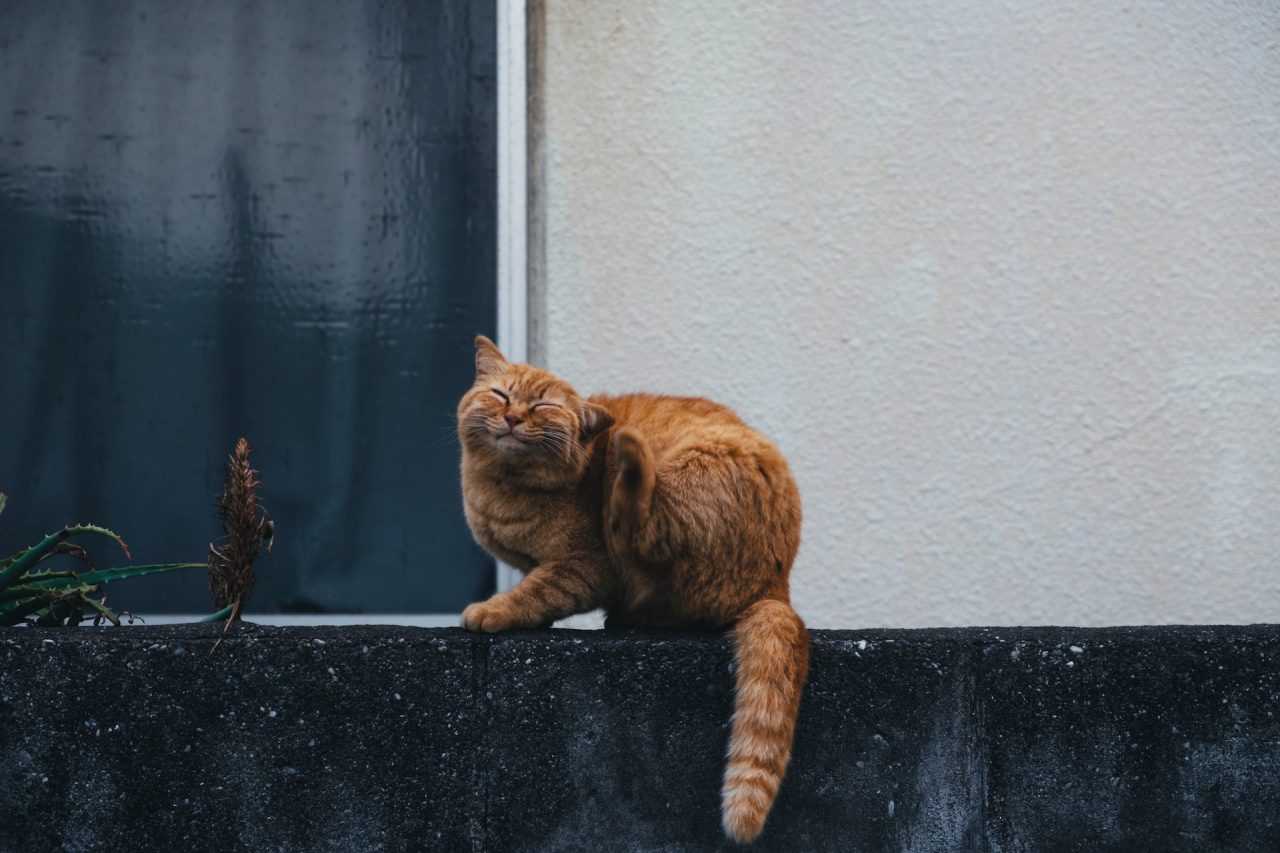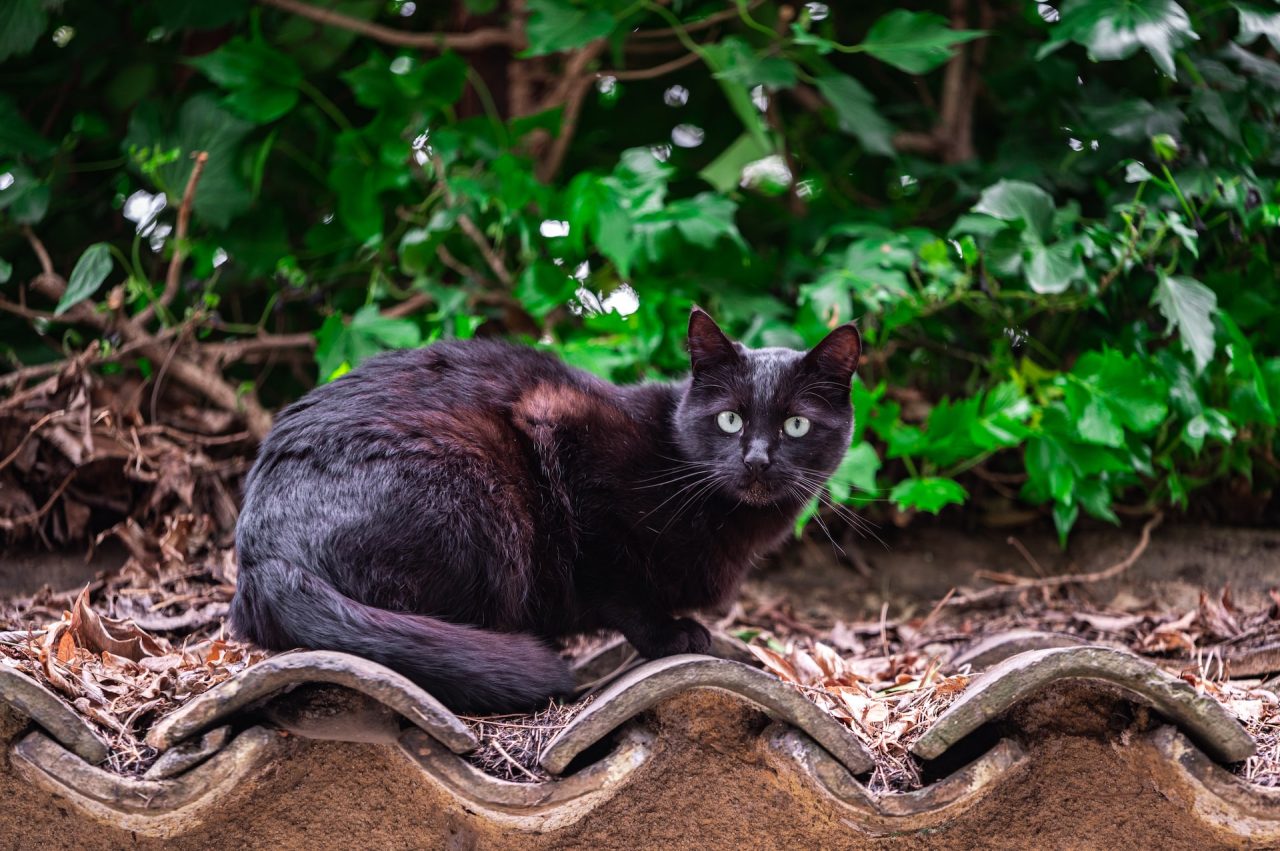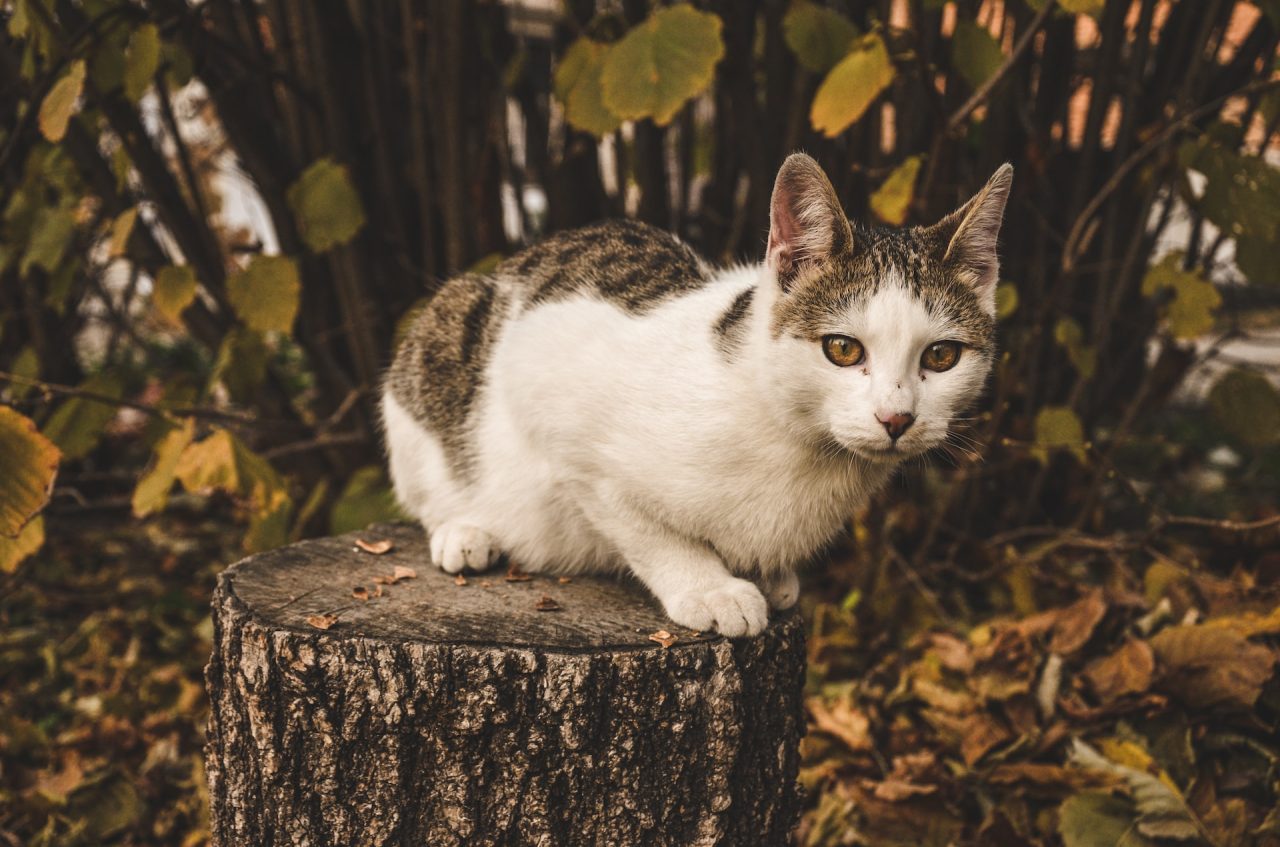📖 Table of Content:
- Cats and high-frequency vibrations
- So, why do cats gag at combs?
- What are some other sounds that usually make cats gag?
- What are the sounds your cat likes?
- FARS in cats
- Should I be worried when I see a cat gagging at combs?
- What else causes the cat’s gagging?
- How to help your cat when she gags?
- Final words
As a cat owner or a person who watches viral videos, you probably saw this funny thing cats do. I guess you already know what I’m talking about. Yes, that’s right, humans running their fingers across the comb and their cats gagging. I bet you laughed but then asked yourself, “Why do cats gag at combs?”
I know your first instinct is to try it out on your cat because it’s as funny as the cucumber prank. However, something that seems interesting to us sometimes isn’t that fun for our cats. Don’t forget that cats love revenge. So if you decide to prank her, you should expect to see deep scratches on your new couch.
Cats and high-frequency vibrations
Did you know that cats have highly sensitive hearing and they can detect much higher-frequency vibrations? They can do it thanks to their inner ear. Unfortunately, or maybe luckily for us, we aren’t able to hear them.
Cats are much more powerful than us as they can hear up to a range of 64,000 Hz. And do you know what’s our highest sound? “Only” 20,000 Hz. That means your kitty is three times more powerful than you! Isn’t that incredible? One more reason to love and appreciate our fluffy buddies even more.
Have you ever noticed how much your cat hates storms? Did you ever think about why that happens?
Well, storms can create decibel levels of approximately 120 dB. And that’s almost twice your fluffball’s hearing comfort zone. And the intense vibration of sound that she feels through her body and paws doesn’t really help them relax.
However, the ability to hear high-frequency vibrations is such a helpful tool for them as it helps them survive in the wild. Why? Because they can easily hear even the slightest movements of their prey, but also predators.
Cats even use it to communicate with each other, because other animals can’t deal with such high frequency. So they probably use it when they want to share some secrets with each other. They’re like secret agents!
This may seem like it doesn’t have anything to do with cats and their tendency to gag at combs but trust me, you’ll know all the answers pretty soon.
So, why do cats gag at combs?
I know you probably thought you’ll never need to use all this info about high-frequency sounds. But now’s the time to remember everything you’ve just read! Why? Because that’s almost everything you’ll need to know to find out why cats gag at combs.
As I already mentioned, cats have a strong and sensitive sense of hearing that usually helps them in life. However, that’s mostly when they live out in the wilderness. When they live with us, that sensitivity even annoys them sometimes.
That’s because you are always doing something, and everything that you do makes a certain sound. They don’t seem that loud to us, but your fluffy buddies can hear everything that even leads to the loudest sound you’ve made.
So every single time your cat hears the sound of a comb, you can expect her to react to it. It’s said that scratching on a comb sounds like the teeth of a mouse. And cats have evolved to always gag when they hear that kind of noise.
The best answer I have for you is that their reaction is a combination of two factors. Those are extreme sensitivity to high-frequency sounds that we’ve already mentioned. But also the fact that comb can hit a very unique frequency.
And it has the power to make the larynx vibrate. If you don’t know what that is, it’s a cat’s voice box. The same thing happens when your cat purrs. And it has the power to cause cats to respond by gagging to the unexpected kind of feeling they’re dealing with.
What are some other sounds that usually make cats gag?
If you want to have a happy cat next to you, then you should learn what are some things she enjoys and others that she hates. That way, you won’t have to ask yourself, “Why do cats gag at combs?“
Luckily, I prepared a list of a few things cats really don’t like to hear. Read and try to remember them.
1. Thunder and other loud noises
We’ve already learned that cats have sensitive hearing. And they can hear many sounds that we can’t. But to understand them better, try to remember that one time you played a song on your earphones but the sound was turned to max and it surprised and hurt you so much.
Remember that feeling and multiply it by 3. That’s how your cat feels when something’s too loud for her. Those sounds could be fire alarms, loud cars, vacuum cleaners, ambulances or fire trucks, or thunder.
2. Electronics
You probably already knew that most of our electronic devices produce noise. But those are some noises we can barely hear, or sometimes we even can’t. Do you know who can? That’s correct, your cat.
We have no idea how loud those sounds actually are and how they affect us both, humans and cats. That noise can affect our pet’s sleep, and social behavior, cause seizures, and lack of appetite.
3. Other cats’ hissing sounds
Hissing sounds can really annoy your cat. That’s why she might hide or hiss too if she hears that sound somewhere near her.
Cats will hiss when they feel threatened in order to scare other cats away. Female cats also often hiss at cats and anyone else who decides to even take a look at her kittens. That’s because cats are overprotective mothers.
In addition to this, a sick cat may try to hiss because she’s too weak to defend herself at that moment.
There are some additional sounds, like crumbling a piece of paper or rustling a plastic bag, that can cause a cat to hiss. So don’t be surprised to hear her hiss while you’re taking the groceries out of your bags.
What are the sounds your cat likes?
If you noticed that cats gag at some things, such as combs, hammering of nails, or clicking of coins, then you should do her a favor and use some of her favorite noises. Here are some of the sounds that most cats really like.
1. Their food
One of the sounds that will make your cat so happy is the sound of her food. And no, I’m not talking about the wet food that she only eats from time to time.
However, when you shake the container or a bag full of her favorite dried food, your cat will come to you in the nick of time.
You can even use this strategy if your cat is hidden somewhere in the house and she doesn’t want to come out. The sound of their favorite meal always makes them come to their bowl as fast as they can. So use it wisely.
2. Music
Another sound that cats adore is music. They like our music. But did you know that there are songs that are specially made for cats? There are and our fluffy friends really love them!
One study said that cats love music that has a specific kind of tempo and frequency. When that kind of music was played to them, they seemed relaxed and like they were enjoying the sound.
But how do you know if your cat likes something you’re listening to or not? It’s actually quite easy to figure it out. Cats who are music lovers will always go toward the sound of it. They will purr, and rub themselves on the speakers.
3. Toys
This might come as a surprise to you, but cats adore all toys. However, there are some that they love even more than others. And those are especially toys that remind them of their prey.
Playing is something cats always do and they enjoy it. Why? Because they find it fun, and it also helps them practice their hunting skills. When they play, they get a chance to follow their instincts.
So the toys that they love the most are the ones with sound. Especially the ones that will make them feel like they are in a real-life hunting scene. Those are usually those little toys that squeak when they are rolled, chewed, or scratched. With them, your cat will feel like she’s really fighting a mouse.
FARS in cats
Feline Audiogenic Reflex Seizures, or as you can shortly say FARS is a newly discovered type of cat epilepsy. It’s much more common when it comes to older cats and it’s caused by high-pitched sounds or other loud noises.
Just as it happens to us, losing the sense of hearing is part of getting older for cats too. They usually first lose the ability to hear lower-pitched sounds.
Every cat is different, so the sounds that trigger different kinds of seizures will always vary between cats. There is a huge variety of different sounds that can be described as cats’ triggers. Some of the most common sounds that cats aren’t really enjoying are:
–Using a mouse
–The clicking of a human’s tongue
–The crinkling of plastic or paper bags
–Clipping nails
–Hammering your nails
–The crinkling tin foil
–Tapping on the glass
–Metal spoon clanging in a ceramic bowl
–People typing on a keyboard
–Keys
–Coins
–The sound of running water
–Coffee grinder sound.
If you notice that your cat always reacts negatively to these sounds, then you should keep an eye on her. If it seems like something that really bothers her, then I suggest you call your vet and see whether it has anything to do with FARS.
Should I be worried when I see a cat gagging at combs?
If you’re like me, then you’re probably asking yourself whether you should worry when your cats gag at a comb, or anything else that triggers them. So I prepared some answers for you to help you figure out your next move.
You see, gagging is a natural defense mechanism. Cats usually use it when they feel threatened or they don’t like something that they heard or saw. As long as it doesn’t happen too often, you have nothing to worry about.
However, if you notice that your cat begins coughing and gagging much more than she did before, then you should take her to the vet.
It doesn’t have to be any serious condition behind her behavior, but if there is, you’ll know on time. And you’ll be able to start the right treatment.
There are several potential causes for that. Some of the common ones are FARS, allergies, respiratory problems, and even dental disease. But it still can be only that your cat dislikes something or she wants to leave the threatening situation.
What else causes the cat’s gagging?
Cats that gag at combs usually do it because of their sensitive hearing. However, sometimes they don’t only gag at them, but it happens more often. Here is the list of other possible reasons you’ve seen your cat gag.
Respiratory Problems – Unfortunately, we are not the only mammals who can develop respiratory problems. Our cats can also struggle with those problems.
It can come from different causes, such as infections, foreign objects that are stuck in the airway, and even cancer. These problems can cause your cat to gag often and you might notice she’s struggling to breathe.
Feline Asthma – Asthma is another respiratory disease that can also affect our pets. Your cat’s airways become inflamed so she gets trouble breathing. This will alarm you that something’s wrong.
Those cats who suffer from FARS are more likely to develop Asthma too. That’s because they are more prone to allergies since their immune system is weak.
Allergies – Did you know that cats can be allergic to many different things? It even includes things we can be allergic to too. Those are things such as pollen and our food.
This can cause breathing problems that can make cats gag or cough. If you think your cat might be showing some symptoms of allergies, you should take her to the vet.
Dental Disease – It happens when plaque and tartar build on their teeth. This causes pain but it doesn’t last long. The worst thing is that it often leads to infection. So it definitely shouldn’t be left untreated.
Hairballs – We all know that cats groom themselves constantly. That’s why they’re known for swallowing a lot of hair. And it can form into balls in their stomach, which can cause gagging.
How to help your cat when she gags?
I know that seeing cats gag at combs can be very scary if it lasts for a long time. That’s why I want to tell you how you can help your fluffball if that happens to her. Here are some things you can do to help her relax.
You can massage her throat. – If your cat starts gagging and coughing and it sounds like something is caught in her throat, you should try massaging it. It will definitely help her relax the throat muscles. And she’ll be able to finally swallow.
Try to hold down the tongue. – One of the most efficient ways to help your cat stop the gagging is to get additional air into her nose. You should put your finger in her mouth and carefully hold down the tongue.
It will help in getting more air to her nose, which will help clear whatever is making your cat gag. However, you should be very careful because a frightened cat may bite your finger.
Put a hand over your cat’s nose. – If you over her nose with your hand, it will stop the air from coming through her nose. And she’ll be forced to swallow, which will help clear her throat and finally stop the irritation.
Call your vet. – You should call your vet immediately if you think your feline is showing signs of distress. Some of the signs that might show there’s something wrong with her are difficulty breathing, heavy drooling, dry cough, confusion, or blue gums.
Final words
Congratulations. Now you know why do cats gag at combs. You also learned about many more things that are connected to it. Every new information you gain is a way of becoming even better friends with your pet.
They need us, but we also need them in our lives. So it’s our duty to try and protect them because they would always do the same for us.
Read more: My Cat Is Snorting! How Am I Supposed To Behave?
